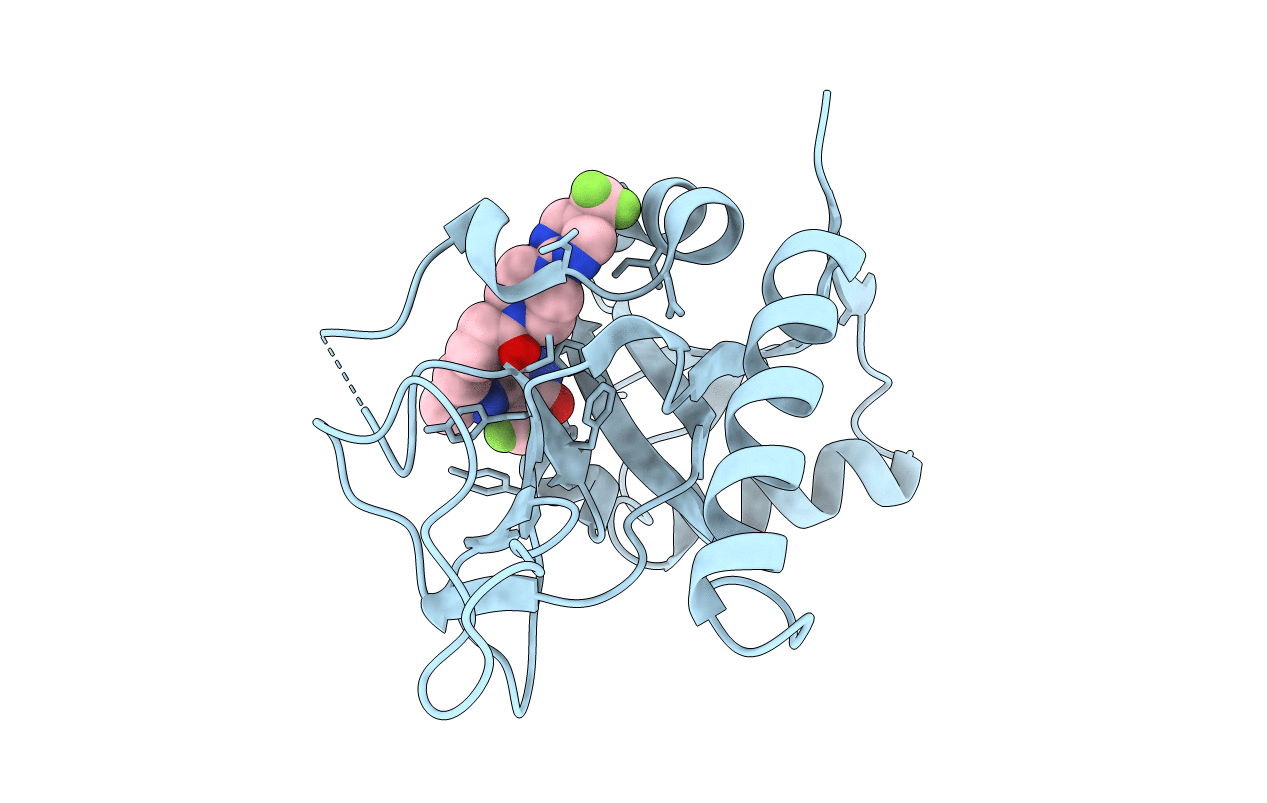
Deposition Date
2019-11-26
Release Date
2020-12-16
Last Version Date
2024-10-16
Entry Detail
PDB ID:
6V3W
Keywords:
Title:
Human Poly(ADP-Ribose) Polymerase 12, Catalytic fragment with four point mutations in complex with RBN-2397
Biological Source:
Source Organism(s):
Homo sapiens (Taxon ID: 9606)
Expression System(s):
Method Details:
Experimental Method:
Resolution:
2.04 Å
R-Value Free:
0.25
R-Value Work:
0.21
R-Value Observed:
0.21
Space Group:
P 65 2 2


